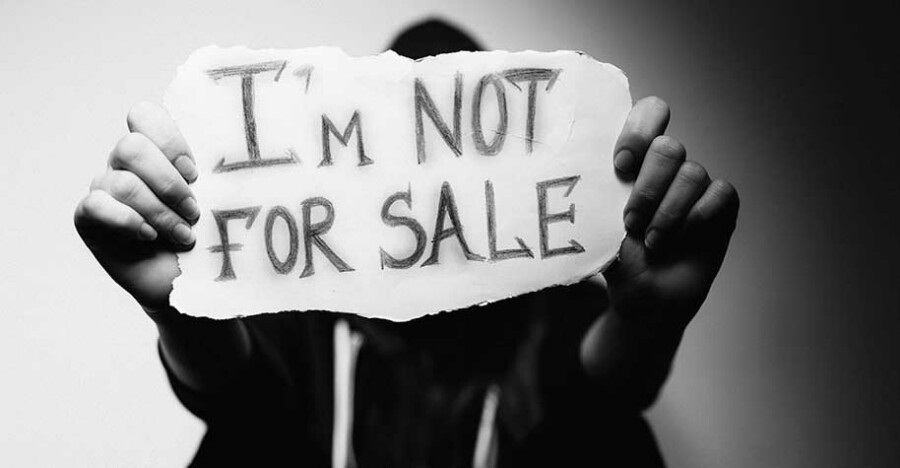‘Modern day slavery’ topic of retreat
By Linda Worthington
UMConnection Staff

Celebrate Recovery
The Conquer Series
The Maryland Human Trafficking Task Force (MHTTF)
The Samaritan Women
Open Table
Twice a year, older adults gather at the West River Camping Center to spend a “day away.” Some come in buses or vans, some are in
About 50 women and men attended the Spring Day Away, taking home a moving story and a lot of information about sex trafficking in the Baltimore-Washington area and what churches can do about it.
The Rev. Craig McLaughlin told the stories of Hannah, his youngest daughter, and her struggle with heroin addiction, which led to her being in the sex industry and, eventually, to her death at the age of 19.
Human trafficking is the fastest growing crime in our country and the world. It exists in the form of sex trafficking, labor trafficking
Referring to sex trafficking as “
Slavery then was legal, but “trafficking is an illegal slavery,” he said. Close to three million “slaves” are in the U.S. today, he said, including 100,000 children; it is a $2.4 billion industry.
McLaughlin has no patience with those who say it can’t be done, because, he said, “It took those Christians decade after decade to (end slavery).” But the change did happen. “The wickedness of
It was a shock when the McLaughlin’s learned their 14-year-old daughter was an addict, smoking, drinking and sneaking out of her room.
Her addiction started when she got her first pain pill, Percocet or Vicodin, which “are synthetic heroin.” He noted that 26,000 people die every year from prescription drugs. “She was addicted
When she returned from that program, she met a 24-year-old man who taught her to shoot up and became her pimp to work the Baltimore streets. “We didn’t know.”
“She would do anything to get money to buy (the drugs)”, Mc Laughlin said. “We got her arrested at age 17 after finding heroin in her room,” and the courts took over. She was sent to a rehab program in Florida, where she met a guy who captured her with other girls and she/they were sold over and over.
Four months after she returned he met her for lunch and McLaughlin saw she was covered with bruises. Two weeks later, they found her in her room brain dead from an overdose. It was March 24, 2014. She was 19 years old.
“No one ever judged her in the church where she had 40-50 friends,” he said.
“I’m not crushed. I know she’s well, God has her. … How can I be crushed when I know the Lord is here for me?”
During a workshop, he challenged the attendees to think about a young adult in their churches who would lead an anti-trafficking effort. “Bring them into the work,” he said. “Young adults are all about this fight.”
Churches can get involved in legislative efforts, he said, noting that Maryland does not have a good record on this issue. Tightening arrest laws on the buyers would be a good step toward helping to end the sexual slavery.
McLaughlin spoke at length about the role pornography plays in “feeding” prostitution. “Pornography,” especially for
He also said support groups for parents of addicts are helpful. There’s a power in sharing your story with another. Having an addict in your family affects everyone. “Don’t hide it.”
